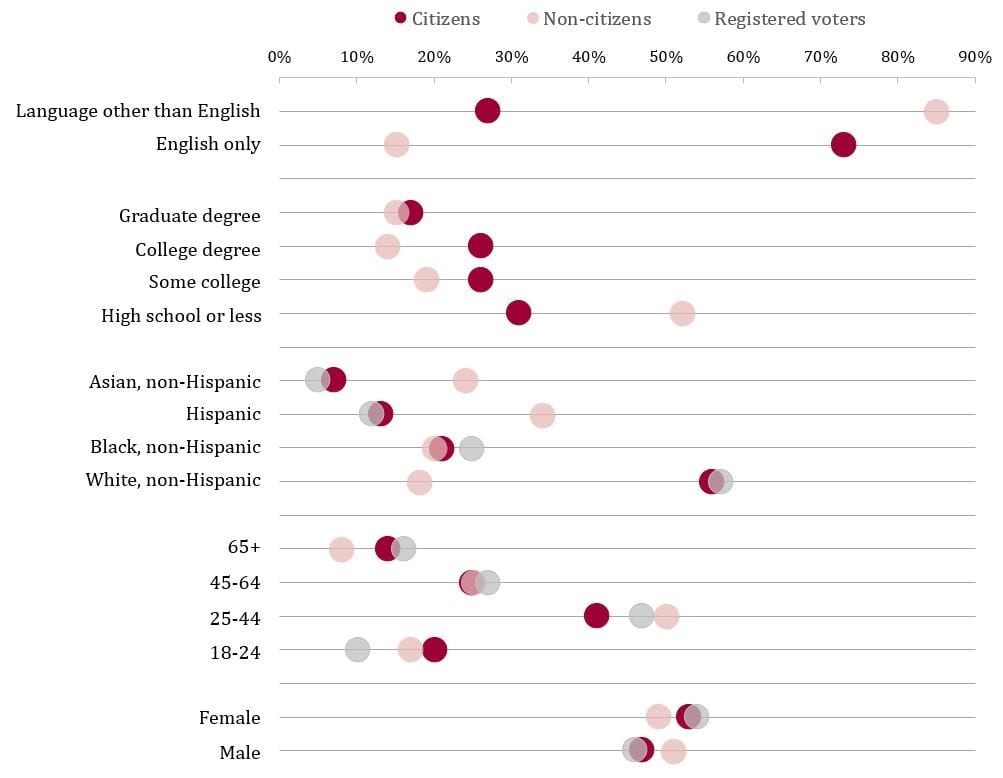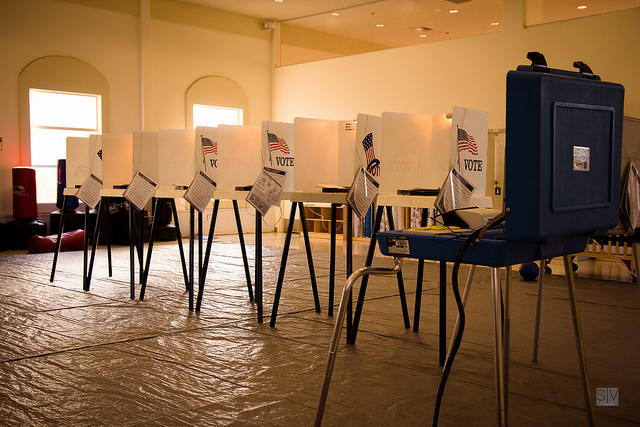
Voting is the core of democracy. But who gets to vote has been fraught with political disagreement since America’s earliest days. Recently, a series of decisions from the Supreme Court has loosened enforcement of voting rights in places with sometimes dubious track records. Those rulings, and continued talk of voter fraud from the administration, has opened the way for some states to clamp down on ballot access. Some groups are struggling to secure ballot access or seeing their right to vote trimmed around the edges. Meanwhile, Massachusetts is bucking this trend and looking to expand the franchise. A bill which would automatically register eligible voters is working its way through the legislature.
The City of Boston is going even further, exploring the idea of allowing any legal resident of the city to vote in municipal elections. The City Council held a hearing on the proposal this month, which would extend the vote beyond citizens to permanent residents, visa holders, DACA recipients and those with Temporary Protected Status. Proponents of the measure say legal residents deserve representation since they contribute to the economy, pay taxes, send their children to local schools, and are part of the fabric of the city. Opponents say voting is a right that should only be afforded to those who are full citizens.
Boston would not be the first to take this step. The Boston Globe reports Takoma Park, MD, has had a similar rule in place since 1993. San Francisco implemented a narrower measure, which allows non-citizens with legal status to vote in school board elections.
Expanding the franchise could shift the demographics of the potential electorate. Census data of Boston residents ages 18+ reveals notable demographic differences between citizens and non-citizens. The Census does not tally documented versus undocumented immigrants, so we are using non-citizens as a proxy for this analysis.
Non-citizens are younger than citizens in Boston – 67 percent are between the age of 18 and 45, compared with 61 percent of citizens. As may be expected, they’re more racially diverse – 34 percent are Hispanic and 24 percent are Asian, compared with 13 percent and 7 percent among citizens, respectively. Only about a fifth are white (18 percent) compared with 56 percent of all citizens in Boston. Non-citizens are also more likely to speak languages other than English. Some 85 percent of non-citizens speak another language, compared with just 27 percent of citizens.

There are even larger gaps when it comes to education. About half of adult non-citizens (52 percent) have a high school degree or less, compared with 31 percent of all citizens in the city. Meanwhile, 43 percent of citizens have a college or advanced degree, compared with 29 percent of non-citizens. There are also gaps in income – the median household income for citizens in Boston is $74,935. For non-citizens, the median figure drops to $52,500.
Of course, not Boston citizens are registered to vote, and the gaps between registered voters and non-citizens are even wider. Registered voters tend to be older (43 percent are 45 or older, compared with 33 percent of non-citizens) and whiter (57 percent versus 18 percent). Registered voters tend to have higher education and income levels than the population as a whole. Non-citizens, meanwhile, are below average on both statistics.
Expanding voter access to legal residents would bring complications. Besides the logistical challenges, some immigration advocates warn of unintended consequences. Illegal voting by non-citizen residents is cause for criminal prosecution or deportation. If a legal resident mistakenly votes in a state or federal election, that could jeopardize their chances at citizenship. And such a move would certainly bring controversy, as does everything related to immigration and citizenship these days.
But at a time when many states are pulling back on voting access, Boston’s resident voting proposal is an interesting move in the opposite direction. If residents actually take the step to register and vote, the electorate making decisions at the city level would look a little more like the population of the city as a whole.
MPG ICYMI
This week on the Horse Race, Steve and Lauren talked to political consultant Doug Rubin, late of campaigns for Deval Patrick and Elizabeth Warren, to ask him about his former clients’ plans for 2020. Then Steve looked west for updates on some of the races in the Pioneer Valley from The Springfield Republican’s Shannon Young and our own Western Mass bureau chief Rich Parr.
Last week, Steve and guest host Lizzi Weyant of MAPC talked to George Cronin of Rasky Partners about the three questions left standing on the fall ballot. The Dorchester Reporter’s Jenn Smith analyzed the primary between Mike Capuano and Ayanna Pressley, and Lauren called in from vacation to discuss her coverage of Deval Patrick’s trip to Texas to campaign for Democrats.
This week Governor Baker sent a pilot program for lowering tolls outside of rush hour to reduce congestion back to the legislature with an amendment, all but vetoing the plan. Writing for WBUR before the decision was announced, Steve Koczela and Rich Parr noted that past polling shows twice as many voters supported the idea than opposed it.
THE CROSSTABS
FiveThirtyEight has Donald Trump’s approval rating at 53 percent disapprove, 41 percent approve. Democrats have an 8 point lead in the generic Congressional ballot.
